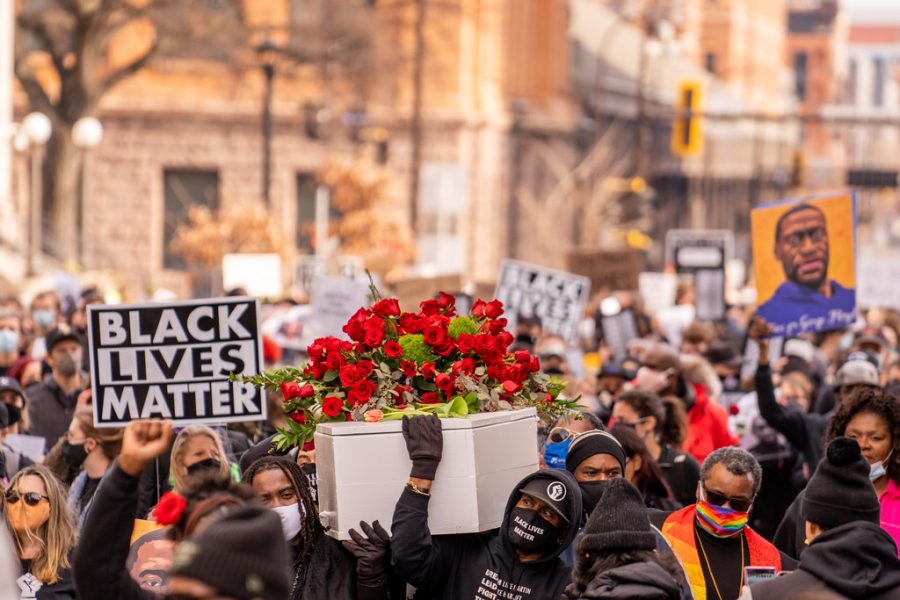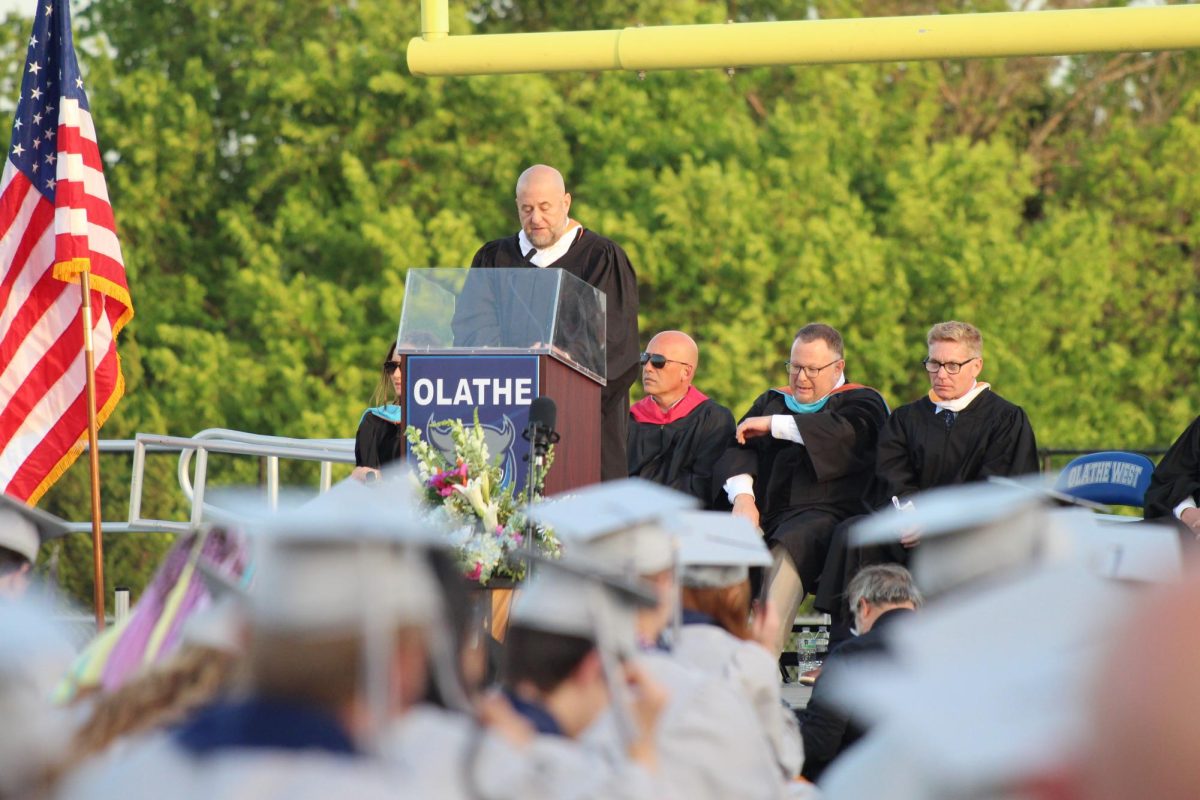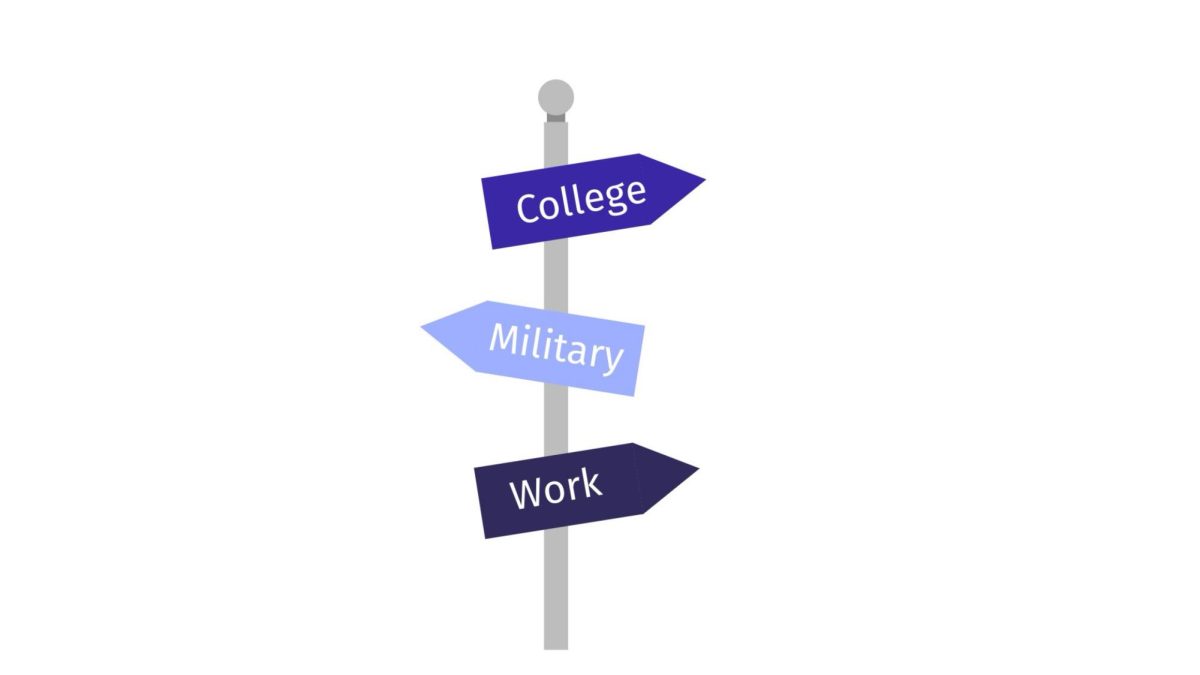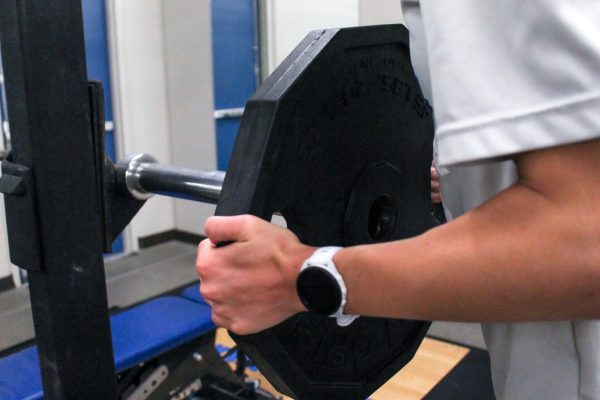Verdict in Chauvin Trial Leaves Some Wondering: What Took so Long?
Derek Chauvin trial was found guilty on all counts after the death of George Floyd last May.
May 13, 2021
On May 25, 2020, Minneapolis Police Officer Derek Chauvin knelt on George Floyd’s neck. His hands were cuffed behind his back and he was facedown on the pavement for nine and a half minutes. He knelt for two minutes after Floyd stopped talking, and two more minutes after he stopped breathing. Floyd was pronounced dead in a nearby hospital at 9:25 p.m.
The entire altercation between Chauvin and Floyd took less than 20 minutes. Chauvin arrested Floyd after a convenience store owner claimed that he had used a counterfeit bill to pay for cigarettes. 17 minutes later, Floyd was dead.
A video taken by 17-year-old Darnella Frazier captures the incident and shows Chauvin as what he is: a murderer. “But this was just a one-time thing,” some argue. “Chauvin simply reacted out of fear, like anyone would’ve, right?” This type of thinking could not be more incorrect.
On September 4, 2017, Chauvin was one of many officers responding to a domestic assault call in which a mother was being assaulted by her two children. As the woman’s son was slow to comply with Chauvin’s commands, video footage shows Chauvin beating the boy in the neck with a flashlight and beginning to choke him. The boy eventually lost consciousness and fell to the ground, where Chauvin handcuffed him and knelt on his neck. This is when the boy, as well as his mother, began to plead with Chauvin. The boy repeatedly stated that he couldn’t breathe as his mother begged Chauvin not to kill her son. The boy lay on the ground under Chauvin’s knee for 17 minutes before he finally let up.
The entire incident is disturbingly similar to what happened three years later with George Floyd, proving that Chauvin was not simply reacting out of fear. Racism and brutality among police officers are learned behaviors, and Chauvin knows it better than anyone.
It has been nearly a year since the murder of George Floyd, but the Black community is finally receiving some justice. On March 29, a trial began for Derek Chauvin. He was to be investigated for second-degree unintentional murder, third-degree murder and second-degree manslaughter. The trial took three weeks and dozens of witnesses spoke, but in the end, Chauvin was found guilty of all charges.
The effects of Floyd’s murder can be seen everywhere–not just in Minneapolis, where it occurred–but within the hearts of Americans who saw firsthand the act of violence committed by a man whose job is to protect the community.
Olathe West sophomore Derek Foster recollects on how he felt when he first saw the video of the George Floyd incident.
“I just couldn’t believe that something like this could actually happen,” Foster said. “Not only did this happen with a police officer and an unarmed black man, but also it’s in high quality video.”
Upon first viewing the video tape, the atrocity committed against Floyd is painted clearly. With Floyd begging for his life, screaming “I can’t breathe,” Chauvin continued to kneel. With the entire altercation captured onto video and blasted to screens across the nation, it seemed obvious that what happened to Floyd was an act of murder. But it quickly became apparent that not everyone in America possessed this viewpoint.
“To a degree, I think everybody thought that it was wrong,” Foster said. “I know that in situations like this, there’s always going to be a lot of [the opposing side] trying to flip it and make one side look worse than the other side, but we saw a video of what happened, and people who were there knew what happened, so why did it seem like they were still trying to paint out the guy who got murdered over a counterfeit $20 bill as the villain in this situation? It’s messed up, I don’t get it.”
Regardless of how clearly the situation was shown in the video footage, it took the better part of 10 months for America to formally recognize Chauvin as a murderer. Many questioned why it has taken this long. Some questioned whether Floyd would ever receive justice at all.
“Regarding the trial, I felt concerned about whether or not [Chauvin] was going to be convicted of the things he was charged with,” Foster said. “Personally, when I first saw the issue, my only thought process was ‘OK he killed the guy, he should be convicted of murder.’ I was concerned about why it was taking us 10 months to confirm that he killed [Floyd].”
One stance taken by those who campaigned for Chauvin’s innocence was that George Floyd had heavy drugs in his system, causing a heart attack which was the primary cause of his death. However, this stance was proven wrong during the trial, as multiple medical examiners testified against Chauvin, explaining that George Floyd died with no drugs in his system.
“I think that is a very ignorant take to have at this point,” Foster said, about those who still believe Floyd died of a drug overdose. “After all that we’ve figured out about this, after all we knew beforehand, and 10 months later, what we know now, if you still think that this wasn’t due to a policeman putting his knee on the back of Floyd’s neck for nine and a half minutes, while he said he couldn’t breathe about 20 times, if you think that George Floyd is at fault for his own death, that’s just an ignorant take to have.”
Regardless of societies differing viewpoints, George Floyd did eventually receive a semblance of justice. In April of this year, Derek Chauvin was convicted of second-degree unintentional murder, third-degree murder and second-degree manslaughter. He is to spend a maximum of forty years behind bars, begging the question: Was Derek Chauvin, a murderer, let off too easy? Derek Foster seems to think so.
“As much as I would like to say it’s what he deserved, I feel like this might’ve been a little bit too easy,” Foster said. “I did a lot of research regarding this whole thing, and I feel like he should’ve gotten life in prison for something like this. I feel like he got off easy. This should’ve been a much easier conclusion to get to.”
Though in the end, Floyd’s murderer was rightly found guilty, the 10 month process awakened an anti-police brutality movement that brought to light the injustices against Black Americans that we have been ignoring for decades.
“We’ve been here so many times before,” Foster said. “I can’t make any assumptions about [internalized racism], but at some point race might need to be a conversation, because it’s happened so many times.”
As the murder trial against Derek Chauvin and the riots that accompany it come to a close and disappear from the news, it is imperative we don’t let these societal injustices disappear from our minds. Derek Foster ignites these ideas in one final point:
“Despite this being a victory for George Floyd’s family, and a small victory in the grand scheme of things, the job is most certainly not finished,” Foster said. “It’s not justice for everyone until situations like this are solved and this stops happening.”








